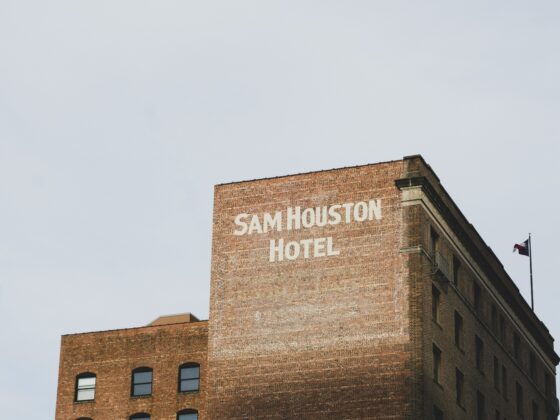Ever wondered how your hotel can rise above the noise in today’s hyper-competitive, digital-first world? It’s all about showing up where your guests are—whether they’re scrolling through your website, or on TikTok and Instagram for travel inspiration or planning trips. Multichannel marketing isn’t just a buzzword; it’s your secret weapon to capture attention, connect with diverse audiences, and turn lookers into bookers.
In this guide by our hotel marketing solution, we dive into the game-changing strategies of social media marketing to help you boost bookings, foster loyalty, and wow your guests at every step.
Let’s discover these tips by WIWT to turn your hotel into a money-making machine with the help of the following multi-channel strategies:
Article Summary:
- What is Multichannel Marketing for Hotels?
- Benefits of Multichannel Marketing for Hotels
-
Social Media Channels for Hotel Marketing
- TikTok Marketing for Hotels
- Instagram Marketing for Hotels
- Facebook for Hotel Marketing
-
Other Essential Channels for Multichannel Marketing
- Email Marketing for Hotels
- Direct Booking Websites
- OTAs (Online Travel Agencies)
- Search Engine Marketing (SEM)
- Tools and Platforms for Multichannel Marketing
- Common Challenges in Multichannel Marketing
- Case Studies: Hotels Excelling in Multichannel Marketing
- Our Final Take on Multichannel Marketing for Hotels
- FAQs
Key Takeaways
- Multichannel marketing ensures hotels reach guests on platforms they actively use.
- Each channel has unique benefits—TikTok drives viral engagement, LinkedIn builds B2B credibility, and Instagram excels in visual storytelling.
- Tools like AI-powered chatbots and social media schedulers simplify campaign management.
What is Multichannel Marketing for Hotels?
Multichannel marketing involves promoting a hotel across various platforms to connect with a wide range of audience segments, often complemented by travel affiliate programs to enhance reach and impact. Unlike omnichannel marketing, which integrates platforms seamlessly, multichannel efforts optimise each channel independently.
For example, TikTok thrives on authenticity and trends, while Instagram emphasises aspirational visuals. A traveller may first see a hotel on TikTok, research it on Google, and finally book through its website.
This approach ensures hotels can meet potential guests wherever they are, increasing touchpoints and conversion opportunities.
Benefits of Multichannel Marketing for Hotels
1. Enhanced Brand Visibility
By being present on multiple platforms, hotels ensure they stay top-of-mind for travellers. For instance, promoting a luxury resort on Instagram Stories can build brand recognition among affluent millennials.
2. Better Personalization
Multichannel strategies allow hotels to collect and analyze data from various touchpoints. Personalization examples:
- Showing TikTok viewers content about different features.
- Targeting travellers on Instagram with special discounts.
3. Improved ROI
Engaging with travellers on their preferred platforms increases the likelihood of bookings. For instance, a well-placed ad on Facebook can attract families planning vacations.
Social Media Channels for Hotel Marketing

TikTok Marketing for Hotels
TikTok is the go-to platform for hotels looking to captivate Gen Z and millennial audiences. Its unique algorithm rewards creativity and authenticity, making it ideal for showcasing:
- Behind-the-scenes hotel moments.
- Destination highlights that encourage wanderlust.
Hotels like The Langham have used TikTok hotel marketing to drive engagement with short, trendy videos. TikTok is one of the main platforms where people look for travel tips and destinations when they are planning their next trip.
Instagram Marketing for Hotels
Instagram is perfect for hotels aiming to build an aspirational brand. Its focus on high-quality visuals makes it ideal for:
- Showcasing scenic views and luxury amenities.
- Collaborating with travel influencers to boost credibility.
For example, Four Seasons Hotels have used Instagram Stories and Reels to share guest experiences, driving bookings through direct links. Instagram hotel marketing is one of the top-used marketing strategies nowadays.
Facebook for Hotel Marketing
Facebook remains a powerful platform for engaging a broad audience, including families and local travellers. Key strategies include:
- Using Facebook Messenger for direct communication with guests.
- Hosting live virtual tours to showcase property highlights.
Other Essential Channels for Multichannel Marketing
Email Marketing for Hotels
Email remains one of the most effective tools in a hotel’s marketing toolkit. Its ability to deliver personalized, high-impact messages directly to a guest’s inbox ensures high ROI.
Key strategies:
- Personalized Campaigns: Leverage guest history to send tailored offers, such as birthday discounts or loyalty rewards.
- Automation Tools: Platforms like HubSpot enable automated email sequences for abandoned cart reminders or post-stay follow-ups.
- Exclusive Offers: Use newsletters to share special rates, early bird discounts, or packages.
Case Study: A boutique hotel in Paris boosted bookings by 25% by automating follow-up emails to site visitors who didn’t complete their booking.
Direct Booking Websites
A well-designed hotel website is essential for capturing direct bookings and maximizing profit.
Key elements of a high-converting website:
- Mobile Optimization: Ensure a seamless user experience on smartphones and tablets.
- Dynamic Pricing Tools: Display real-time rates based on demand and availability.
- Clear CTAs (Call-to-Actions): Encourage users to “Book Now” with urgency-driven messages.
Case Study: A resort in Bali revamped its website with a mobile-first design and saw a 40% increase in direct bookings.
OTAs (Online Travel Agencies)
OTAs are essential for visibility, especially for smaller hotels without large marketing budgets.
Tips for leveraging OTAs effectively:
- Optimize Your Profile: Use professional photos and detailed descriptions.
- Encourage Positive Reviews: Request satisfied guests to leave feedback.
- Balance OTA Reliance: Pair OTA listings with direct booking incentives.
Case Study: A boutique hotel achieved a 20% rise in revenue by offering guests a discount for booking directly after finding the property on an OTA.
Search Engine Marketing (SEM)
SEM helps hotels appear in search results when potential guests are actively researching accommodations.
Key SEM strategies:
- Google Ads: Bid on branded keywords and popular phrases like “beachfront hotels in Miami.”
- Local SEO: Optimize for location-based searches, such as “hotels near Central Park.”
- Meta-Search Platforms: Partner with sites like Trivago to capture budget-conscious travellers.
Case Study: A hotel in New York City saw a 50% uptick in traffic by targeting long-tail keywords related to local attractions.
Tools and Platforms for Multichannel Marketing
AI-Driven Chatbots
Enhance pre- and post-booking experiences with chatbots that:
- Provide instant answers to guest queries with an AI travel assistant.
- Assist in booking rooms directly through platforms like WhatsApp and Facebook Messenger.
- Upsell additional services like spa appointments or guided tours.
Social Media Management Tools
Platforms like Sprout Social or Metricool streamline content scheduling and analytics, enabling hotels to:
- Monitor engagement across platforms.
- Analyze audience demographics to tailor campaigns.
CRM and PMS Systems
Integrate customer relationship management (CRM) tools with property management systems (PMS) to:
- Centralize guest data.
- Automate personalized marketing campaigns.
Common Challenges in Multichannel Marketing
Balancing Resources Across Channels
Hotels often struggle to allocate budgets and staff time effectively. Solutions include prioritizing high-ROI platforms and automating repetitive tasks.
Maintaining Consistency
Inconsistent messaging can confuse potential guests. Develop a unified brand voice and visual identity.
Navigating Privacy Regulations
Laws like GDPR require careful handling of customer data. Invest in secure systems and obtain explicit consent for marketing communications.
Case Studies: Hotels Excelling in Multichannel Marketing
Case Study 1: Viral Success on TikTok
A boutique hotel in Santorini created short, engaging videos of its infinity pool views, garnering millions of views. The campaign increased bookings from millennial travellers by 30%.
Case Study 2: Facebook ads
A luxury hotel in London used a Facebook ad to reach out to travel planners, leading to a 40% rise in hotel bookings.
Case Study 3: Instagram-Driven Bookings
A beachfront resort used Instagram Reels to showcase its private villas, resulting in a 25% increase in direct bookings.
Our Final Take on Multichannel Marketing for Hotels
Multichannel marketing is no longer optional for hotels—it’s essential. From social media platforms like TikTok and Instagram to direct booking incentives and email campaigns, a well-rounded strategy ensures your hotel stands out.
By leveraging your hotel marketing solutions, you can streamline efforts and connect with guests at every touchpoint. Start building a multichannel approach today to boost bookings, enhance guest loyalty, and future-proof your hotel’s success.
For more insights on this topic, visit our hotel marketing blog, where you’ll find up-to-date information and practical tips to enhance your marketing strategy.
FAQs
What is multichannel marketing for hotels?
It’s a strategy that promotes hotels on multiple platforms like social media, email, OTAs, and more to engage diverse audiences effectively.
How can TikTok help market my hotel?
TikTok is perfect for creating engaging, authentic content that resonates with Gen Z and millennials, driving awareness and bookings.
Why are direct bookings important for hotels?
Direct bookings reduce reliance on OTAs, allowing hotels to maximize revenue and foster stronger relationships with guests.
About WIWT:
Wish I Was There (WIWT) is disrupting the hotel industry by taking social selling to a whole new level. Forget the complexities of managing social media and influencer collaborations. WIWT offers a streamlined solution that bridges the gap between hotel marketing and distribution, opening up a world of new opportunities for hotels to connect with potential guests.
Visit our website to find out more or to sign up!






